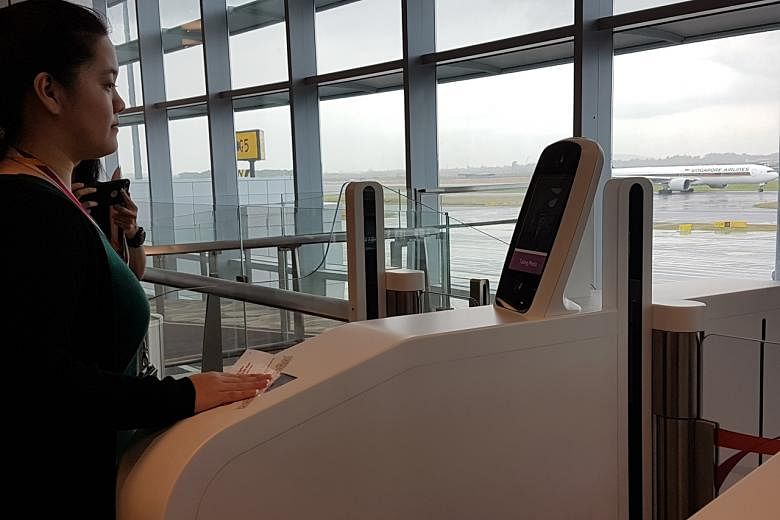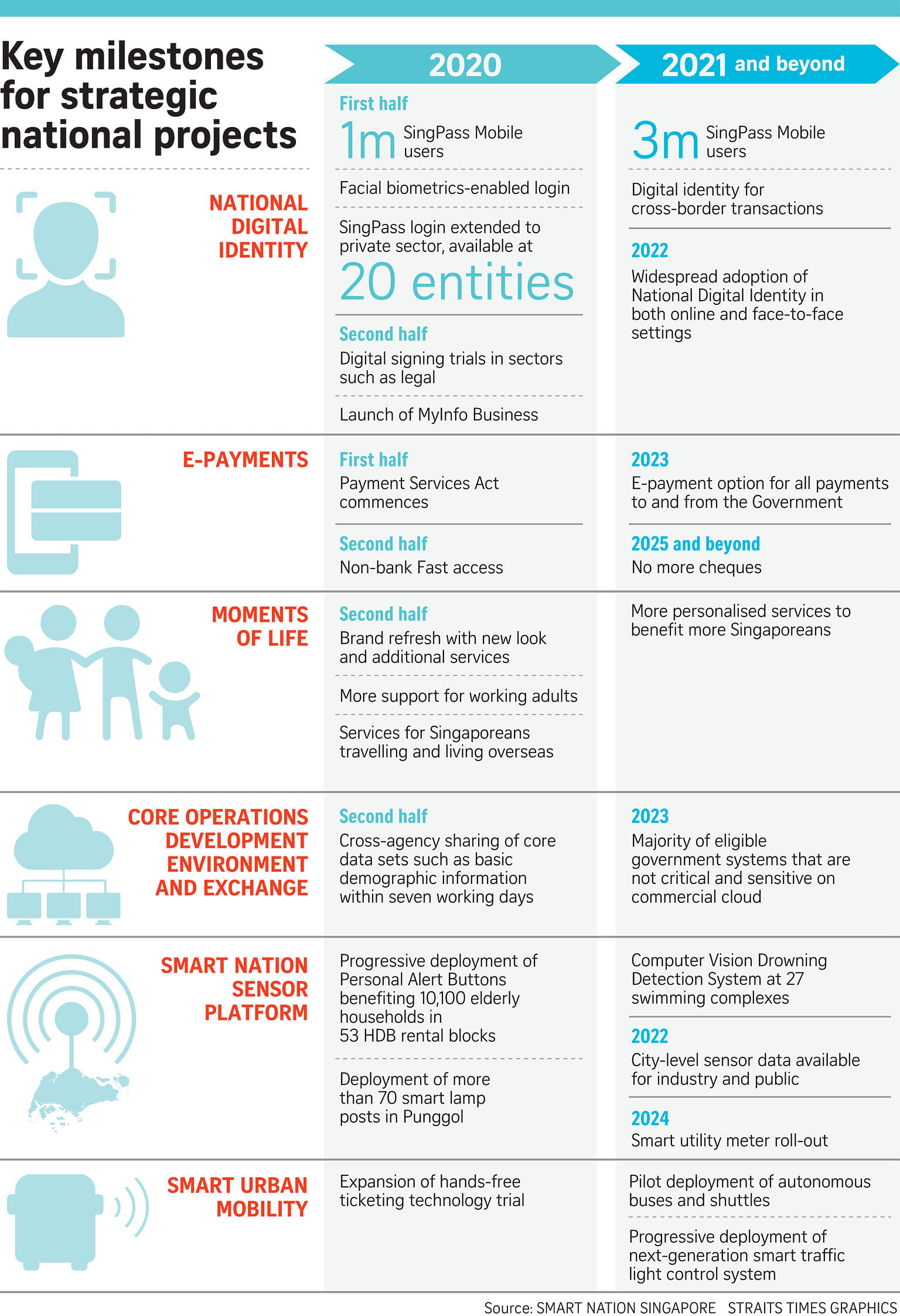Why use your pink NRIC or remember passwords when you can scan your face?
When Singapore puts together its national facial identification service, people will be able to scan their faces at kiosks to instantly verify who they are and initiate transactions, say, at government agencies or banks. The captured facial image will be matched against the Government's biometric database, which contains the facial images and identities of four million local residents aged 15 years and above.
Overseas Singaporeans and the elderly can also register to use the SingPass Mobile app by scanning their faces on their mobile phones.
This will then be verified instantly against the national biometric database over the Web, without needing to enter any password or fuss with security token hardware.
These are new developments on the national digital identity system, which Dr Vivian Balakrishnan, Minister-in-charge of the Smart Nation initiative in the Prime Minister's Office, said are key to Singapore's progress.
There is "a lot of behind-the-scenes work, often unnoticed and underappreciated. But, like physical infrastructure, they are fundamental to our ongoing digital transformation", he told Parliament.
Facial scanning trials on camera-fitted kiosks are expected to start by June this year at government agencies for citizens to access selected digital services, according to the Smart Nation and Digital Government Office (SNDGO). Details have not been announced.
People here are already scanning their faces or fingerprints on their phones to access e-government services using the SingPass Mobile app, launched in 2018. The app has one million users to date.
Private-sector entities such as insurer NTUC Income and the Singapore National Employers Federation are testing the use of SingPass Mobile to secure their members' access to their online services.
The plan is to allow more businesses to benefit from digital infrastructure built by the Government, said Dr Balakrishnan, agreeing with MPs that their success in the digital era is key to Singapore's smart nation journey. Dr Balakrishnan, who is also Foreign Minister, said: "We are testing the use of SingPass by businesses, so they do not have to build and secure their own digital identity verification systems."
With the new facial identification service featuring anti-spoofing technologies, for instance, the private sector is expected to benefit in a bigger way.
Potential uses include allowing banks to easily verify online customers carrying out high-risk transactions such as those involving cashier's orders of over $10,000. Facial scanning in this case will be done on customers' smartphones.
Plus, commercial building owners can identify visitors, and hotels can tailor services for loyalty programme members without needing to check identity documents or having to set up their own biometric database, as is the case at present.
One of the benefits of using the government-backed facial identification service is that biometric data will not be shared with or owned by private organisations.
Users can still opt to enter passwords or use physical identity documents if they object to having their faces scanned, said the SNDGO.
In November 2018, The Straits Times first reported on the government-backed facial identification service involving greater use of the national biometric database.
Current uses of the national biometric database are limited to official purposes, including verification at border checkpoints and in some government buildings to limit access rights.
This digital identity will also be used to verify cross-border transactions, but details are not available.
Responding to a question from Mr Pritam Singh (Aljunied GRC) on the trial of smart lamp posts, Dr Balakrishnan said the next one will be in Punggol. This is an expansion of current trials in one-north business park in Buona Vista and Geylang, where sensor and camera fittings on street lamps collect a wide range of data to catch speeding e-scooters, manage unruly crowds and direct driverless cars. In Punggol, cameras and sensors will be mounted on more than 70 lamp posts for urban and transport planning, and to monitor air quality.
Singapore already has a network of security cameras, but this plan takes it up several notches because of the use of more sophisticated technologies that can merge data sets and draw detailed analyses of people's faces, down to race, gender and age. The project may eventually involve lamp posts islandwide totalling more than 100,000.
Dr Balakrishnan assured the House stringent data management and protection measures are in place: "In particular, only officers with legitimate use of the data would be able to access the data."
In addition, identification of individuals will be done only when necessary such as in law enforcement and in finding missing individuals.
Furthermore, public officers are subject to the Public Service Governance Act, which makes the mishandling and unauthorised access of data a criminal offence, he added.



